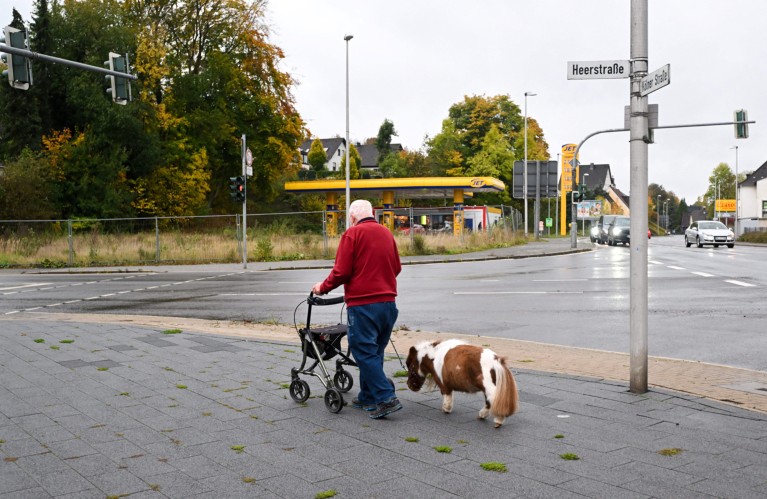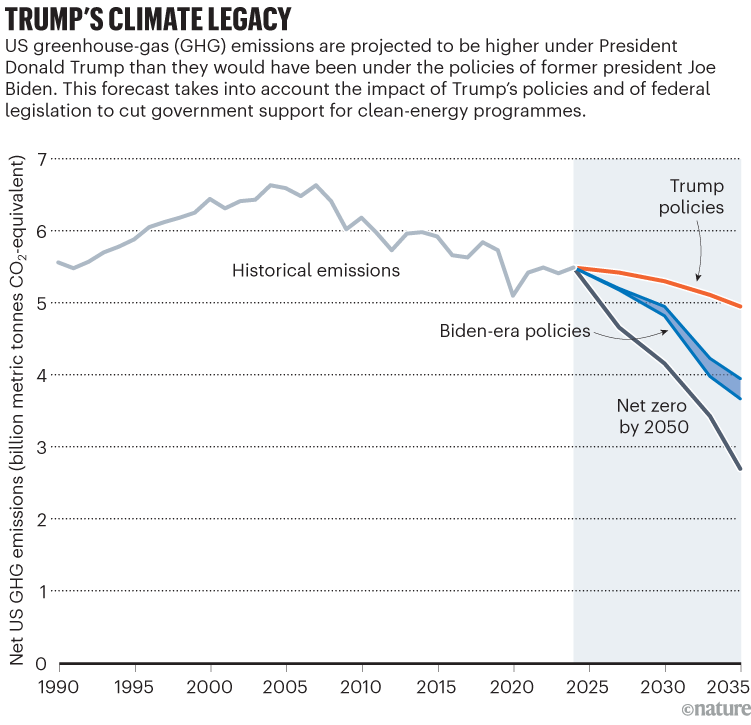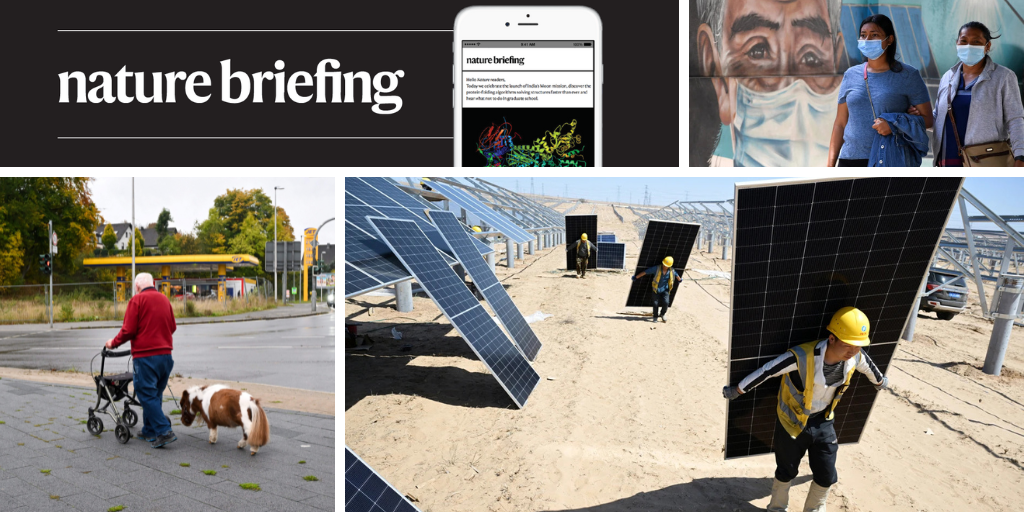You have full access to this article via your institution.
Hello Nature readers, would you like to get this Briefing in your inbox free every day? Sign up here.

Even people who don’t reach the recommended 8,000 steps per day can reap health benefits if they take relatively long walks. Credit: Ina Fassbender/AFP/Getty
Taking as few as 3,000 steps per day seems to stave off mental decline by around 3 years in people whose brains have begun to show molecular signs of Alzheimer’s disease, but who have yet to display any cognitive symptoms, compared with those who stay sedentary. Up to 7,500 steps per day slows the decline by an average of 7 years, but the effect tails off after that.
Meanwhile, people who rack up most of their daily steps in long walks have a lower risk of cardiovascular disease than do those who take walks lasting less than five minutes. The benefits of longer rather than shorter walks were most pronounced among people who took fewer than 5,000 steps per day.
Nature | 4 min read & Nature Research Highlight | 3 min read
Reference: Nature Medicine paper & Annals of Internal Medicine paper
Several ventures in the United States have launched with a focus on altering the genome of human embryos to prevent genetic disorders — a field that labours under the shadow of biophysicist He Jiankui, who ended up in jail for creating the first ‘CRISPR babies’. Unlike gene editing in non-reproductive cells, editing an embryo means that changes will be passed down to the next generation, a concept riddled with safety risks and ethical quandaries. Biotech founder Cathy Tie (who publicized a romance with He on social media) says that “a majority of Americans are in support of this technology”, and that her company will conduct extensive research and safety testing before attempting to create gene-edited babies. But many scientists say that it is much too early to consider commercializing the process.
Global cases of COVID-19 increased by more than 19,000 last month compared with the previous month, according to the World Health Organization. But the true number of infections is probably much higher, say researchers, because surveillance of the virus has dropped off since the pandemic. This data gap can leave health organizations unprepared to recommend vaccine formulations and their roll-out, says clinical epidemiologist Antonia Ho. Some researchers also question whether COVID-19 is really a seasonal virus, the current basis for vaccine offerings in some countries being in the autumn.
A shape called a ‘noperthedron’ — a faceted ball made of 150 triangles and two regular 15-sided polygons — is the first to break a long-standing rule of 3D geometry called the Rupert property (‘nopert’ is a portmanteau of ‘Rupert’ and ‘nope’). In short, there’s no way a noperthedron can pass through a straight hole in an identical shape. I’ll hand you over to the deliciously satisfying animated infographics in Quanta to demonstrate exactly what that means.
Features & opinion
When the United Nations climate conference, COP30, opens on Monday, it looks likely that there will be no delegation from the administration of US President Donald Trump — and some say that’s for the best. “Without the US, there’s still a chance the world could come together in Belém,” says policy specialist Claudio Angelo. Some are looking for China to step up: the world’s largest carbon polluter also leads when it comes to adopting clean energy and producing key products such as solar panels. As host, and home to the world’s largest tropical rainforest, Brazil says it will “lead by example”. And the US will not be totally absent from COP. “States, cities, as well as the private sector are stepping in to pick up some of the slack and keep the momentum going,” says sustainability researcher Ryna Cui.

Source: Repeat Project
Although US emissions will continue to fall under Trump, they could be up to 470 million tonnes per year higher — more than three times the annual total from the Netherlands — over the next decade than they would have been under Biden policies, according to an analysis led by researchers at Princeton University in New Jersey.
The election of a woman, Sanae Takaichi, as Japan’s prime minister on 21 October is a milestone in a country that tends to be ranked as having among the worst gender gaps globally. But sorting the barriers that face the country’s female scientists will require more than the symbolism of having a woman at the top, writes neuroscientist Misa Shimuta. First, overturn the law that requires married couples to share the same family name, argues Shimuta. Then strike at the structural roots of inequality, such as the lack of women in decision-making positions and a precarious funding system that weakens the foundations of Japanese science.
“Yemassee (population 1,080) is home to four times as many monkeys as humans,” writes reporter Ava Kofman — and last November, 43 of those monkeys escaped. Kofman investigates how the animals got out, what it’s like behind the scenes of one of the largest primate-breeding facilities in the United States and how the breakout catalyzed an unlikely coalition of political opponents to fight the use of animals in biomedical research.
Regular readers will know that, when it comes to penguins, our hearts belong to Leif Penguinson (star of our weekly ‘find the penguin’ game on Fridays). But every penguin deserves its day in the sun, which is why we’re on tenterhooks to find out the winner of the National Aquarium of New Zealand’s Penguin of the Year competition.
Let me know which penguin you voted for, and why it was Captain, at [email protected].
Thanks for reading,
Flora Graham, senior editor, Nature Briefing
With contributions by Jacob Smith
• Nature Briefing: Careers — insights, advice and award-winning journalism to help you optimize your working life
• Nature Briefing: Microbiology — the most abundant living entities on our planet — microorganisms — and the role they play in health, the environment and food systems
• Nature Briefing: Anthropocene — climate change, biodiversity, sustainability and geoengineering
• Nature Briefing: AI & Robotics — 100% written by humans, of course
• Nature Briefing: Cancer — a weekly newsletter written with cancer researchers in mind
• Nature Briefing: Translational Research — covers biotechnology, drug discovery and pharma


